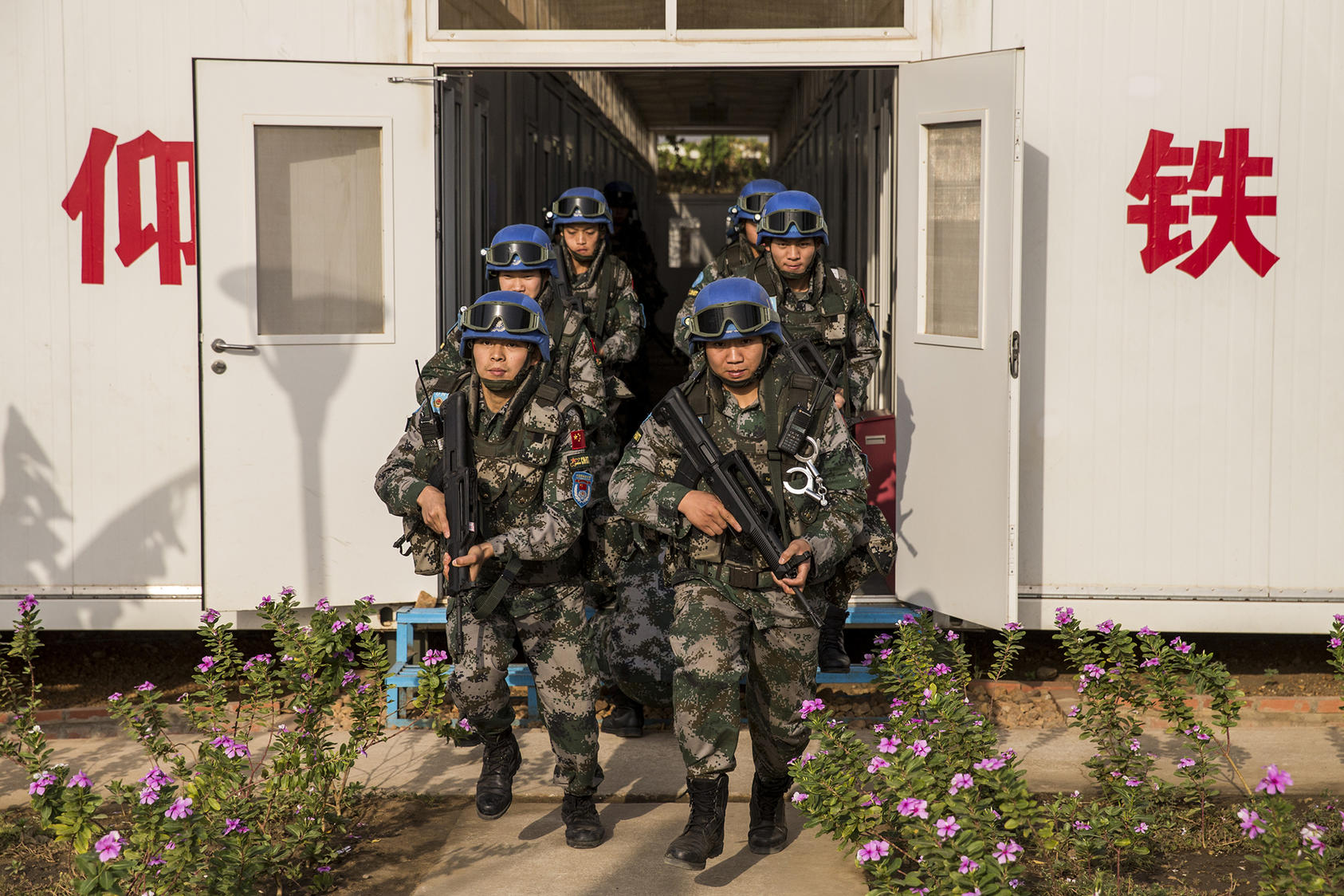Earlier this month, China’s Ministry of National Defense hosted senior military personnel from 50 African countries and the African Union for the first-ever China-Africa Defense and Security Forum. Held over two weeks in Beijing, the forum reflects two primary shifts in China’s Africa strategy that go beyond the traditional emphasis on trade, investment, and resource extraction: promoting improved security relations to help protect China's interests on the continent and enhancing China's reputation as a reliable security partner that is invested in Africa's future.

As China's investments, assets, interests, and number of citizens in Africa continue to grow, Beijing has also steadily expanded its military engagement on the continent. China’s approach to Africa has traditionally focused on economic issues, leaving security and military engagement to the United States. Over the past decade, however, Beijing has significantly increased its involvement in U.N. peacekeeping missions and humanitarian aid, participated in anti-piracy operations in the Gulf of Aden, and strengthened military-to-military contacts with a wide range of African countries. Through joint drills and exercises, weapons sales, technical demonstrations, training workshops, and millions of dollars pledged in security assistance, China is helping countries develop their own military capacity.
At the China-Africa Defense and Security Forum this month, Beijing reportedly offered its military expertise to its African partners, taking them to visit army units and factories, sharing expertise and technical knowledge, and developing a security cooperation plan for approval at the Forum on China-Africa Cooperation (FOCAC) summit in September.
China’s Soft Power Push
Increased engagement on security issues has provided another channel through which China can promote its soft power in Africa, largely through a narrative of win-win cooperation and generous assistance. Confucius Institutes across the continent teach Chinese language and culture, and government scholarships bring thousands of African students to China to study.
China's media presence on the continent has also expanded, and Chinese experts routinely offer professional training in areas such as education, medicine, and agriculture. Further, all-expenses-paid study tours and exchange trips bring stakeholders from other fields to China, where Beijing can educate visitors about its model of governance and economic development—including media and party building training—and enhance its reputation as a reliable partner who is committed to helping its African partners advance their own development.
Risks of Strategic Dependence
This multi-faceted engagement is attractive for many countries in the region. Yet despite calls for a "comprehensive strategic partnership" and a "shared future" with Africa, China's increased investments across the continent threaten to tip the power balance in a way that could give Beijing a substantial amount of political leverage. In Kenya, for example, Chinese companies have helped the country develop its infrastructure and grow its economy, but many fear that the debt burden may be unsustainable, and could ultimately force Nairobi to give China control over its port in Mombasa.
China will engage its African partners again in September at the FOCAC summit, where peace and security issues are likely to be on the agenda. As Beijing redoubles its efforts to "protect its overseas interests," these security relationships—and related efforts to expand China’s influence—will likely continue to grow deeper in the years to come. While many African countries are hopeful about the potential benefits of strengthened ties with the Asian giant, these activities could lead to an outsized and overbearing role for China in Africa.
Midshipman Kerry A. Moore, a senior at the U.S. Naval Academy, is a service academy education and development fellow at USIP. The opinions presented in this article are those of the authors only and do not reflect those of the Naval Academy, the Department of the Navy, the Department of Defense, or the United States Government.



